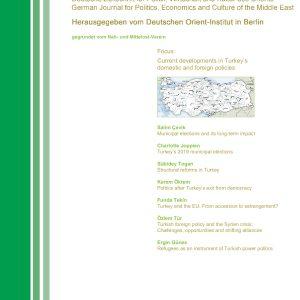Description
This article argues that the local elections of 31 March are a major turning point for Turkey’s political prospects. The re-run of the elections in Istanbul should not be understood as an indicator for the country’s democratic backsliding or its ‘exit from democracy’ – a critical juncture that happened much earlier – but suggests that even under the conditions of an albeit unstable dictatorship, elections can have unintended but far reaching consequences. In the Turkish case, this is the emergence of an emboldened opposition that for the first time in the country’s history now faces the opportunity to embrace a democratic habitus and carry the country beyond its longstanding predicament of being a ‘democracy without democrats’.
Kerem Öktem is Professor of Southeast European Studies and Modern Turkey at the University of Graz and Associate of the Centre of International Studies at the University of Oxford. He is also the founding chair of the Consortium for European Symposia on Turkey. He studied Modern Middle Eastern Studies at Oxford, where he wrote his PhD in the field of Political Geography. He works on Turkish politics with a particular interest in ethnic and religious politics and social movements. Turkey’s Exit from Democracy (Routledge, 2018, co-edited with Karabekir Akkouyunlu), explores the political and societal dimensions of de-democratisation in the context of the country’s transition to a hyper-presidential regime.




Reviews
There are no reviews yet.